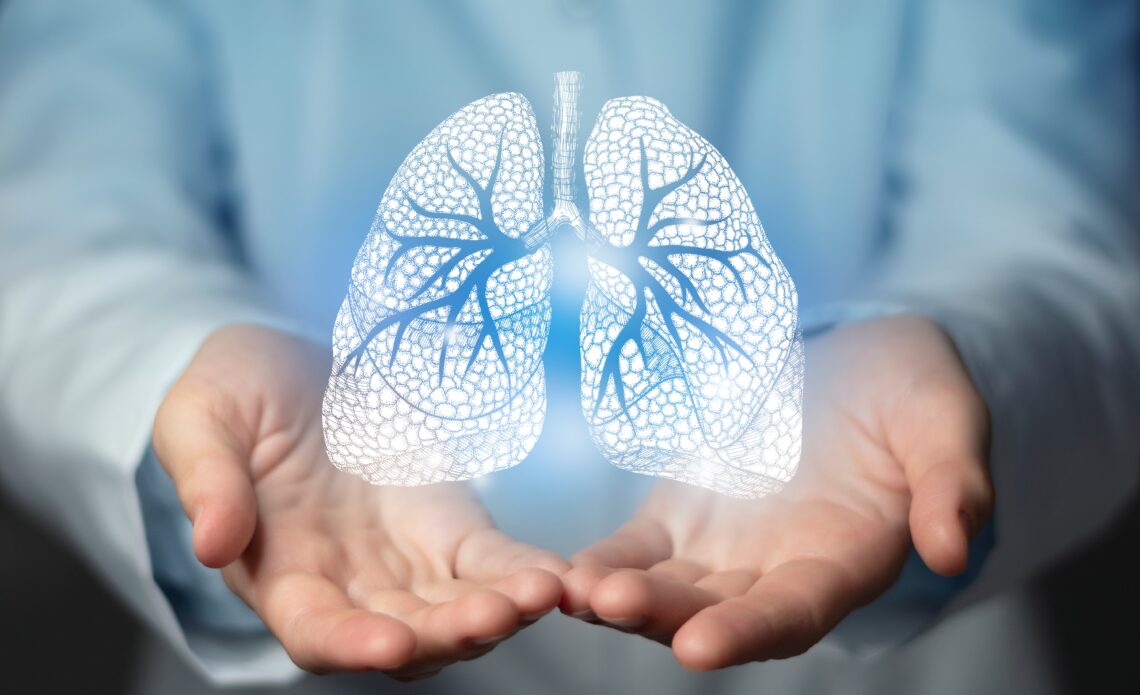
Exercising, not smoking, and breathing clean air are some of the best things you can do to maintain strong, healthy lungs, but did you know that certain foods can also contribute to good lung health?
A lung-healthy diet not only helps you maintain healthy lungs—it can also reduce your symptoms if you are living with a lung condition.
Here’s more about the importance of eating lung-healthy foods and how to request an appointment with Thoracic Group if you need consultation regarding a lung condition.
Healthy lungs are essential for getting the amount of oxygen you need to maintain good overall health and bodily functioning. Oxygen helps deliver nutrients to your cells, converts food into energy, and removes carbon dioxide from your body. If your lungs are damaged, you may not receive the amount of oxygen you need to breathe easily and comfortably, and your body may not be able to perform important functions.
Taking care of your lung health can help you maintain a high quality of life. Practicing lung-healthy behaviors can help you avoid serious lung conditions, such as chronic obstructive pulmonary disease (COPD) and lung cancer, and increase your longevity.
Certain foods are loaded with vitamins, minerals, and other nutrients that improve your blood-oxygen levels and can reduce and/or protect against inflammation in the lungs. Some foods can also indirectly improve your lung health by making you more energetic and active. Eating whole, healthy foods such as fruits, vegetables, beans, and fish can often help stave off inflammation and strengthen your lungs to ward off various lung conditions.
A few simple changes to your diet can go a long way toward improving your lung health and helping you maintain healthy lungs for years to come.
Follow these highly effective diet and nutrition tips for optimal lung health.
Water helps thin the mucus in your lungs so you can breathe more easily. Aim to drink between six and eight glasses of water a day to stay hydrated. To make sure you’re drinking enough, try filling a large jug or pitcher with the amount of water you need per day, and make sure it’s empty by day’s end.
Protein contributes to strong respiratory muscles and boosts your energy levels to help you stay active. Aim to eat healthy sources of protein two to three times a day. Good sources of protein include fish, poultry, nuts, beans, eggs, and cheese.
Try to limit your intake of processed meats like bacon, sausage, and pepperoni, which can drive and worsen inflammation—including in the lungs.
Vitamin D can reduce and “shut down” inflammation due to its positive effects on the body’s immune cells. Getting lots of vitamin D may also reduce your risk for respiratory infections.
Spend a few minutes in the sun on most days a week and eat a higher number of foods with vitamin D. Good sources of vitamin D include fatty fish (such as tuna, salmon, and mackerel), mushrooms, milk, and eggs.
Fruits and veggies are packed with high amounts of vitamins, minerals, antioxidants, and other compounds that reduce inflammation and contribute to great lung health. They also contain high amounts of fiber and complex carbs that can boost your energy and improve breathing.
Nearly all fruits and veggies provide amazing health benefits. Good sources of anti-inflammatory compounds include blueberries, blackberries, broccoli, leafy greens, and apples, among many more. Great sources of fiber are raspberries, avocados, oranges, strawberries, and broccoli.
The U.S. Department of Agriculture suggests making half of your plate fruits and veggies. These foods are also ideal snack options to eat in between meals if you need an extra energy boost.
Mono- and poly-unsaturated fats are considered healthy fats, which raise your levels of HDL “good” cholesterol, unlike trans and saturated fats, which raise levels of LDL “bad” cholesterol. Healthy fats have high levels of antioxidants, polyphenols, and various other compounds and nutrients that can ward off inflammation and lend to good lung health.
Reduce your intake of bad fats, commonly found in pastries, baked goods, processed meats, fried foods, and margarine, and increase your intake of healthy fats. Olive oil, walnuts, avocados, fatty fish, and eggs are some of the many foods that contain healthy fats.
If you’re seeking assistance in creating a personalized healthy meal plan to benefit your lungs, your doctor can refer you to a dietitian, nutritionist, or an appropriate specialist. For information on available treatment options for lung conditions, please contact Thoracic Group at (732) 798-7828 to schedule an appointment. It’s important to note that Thoracic Group does not provide services related to diet or nutrition.